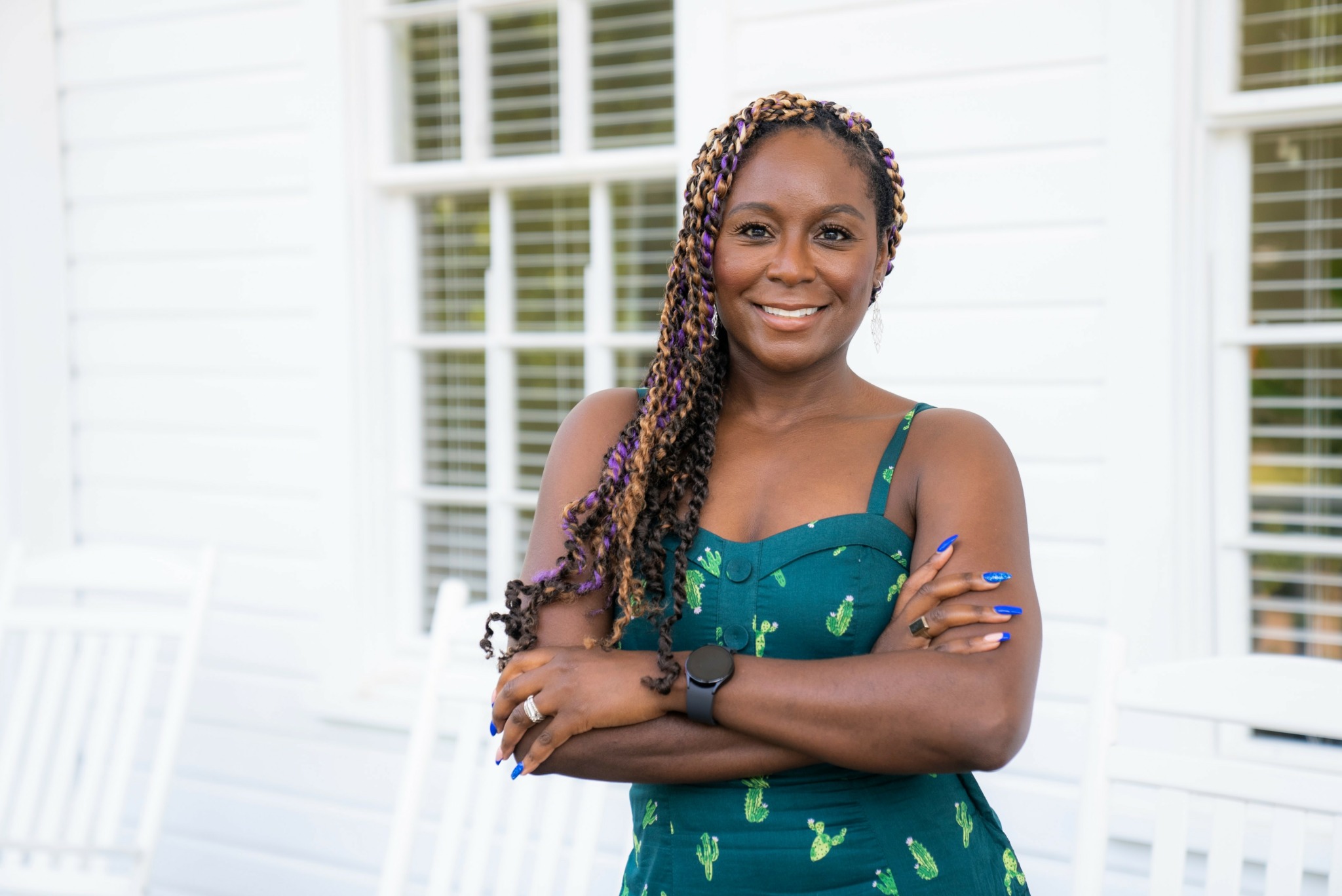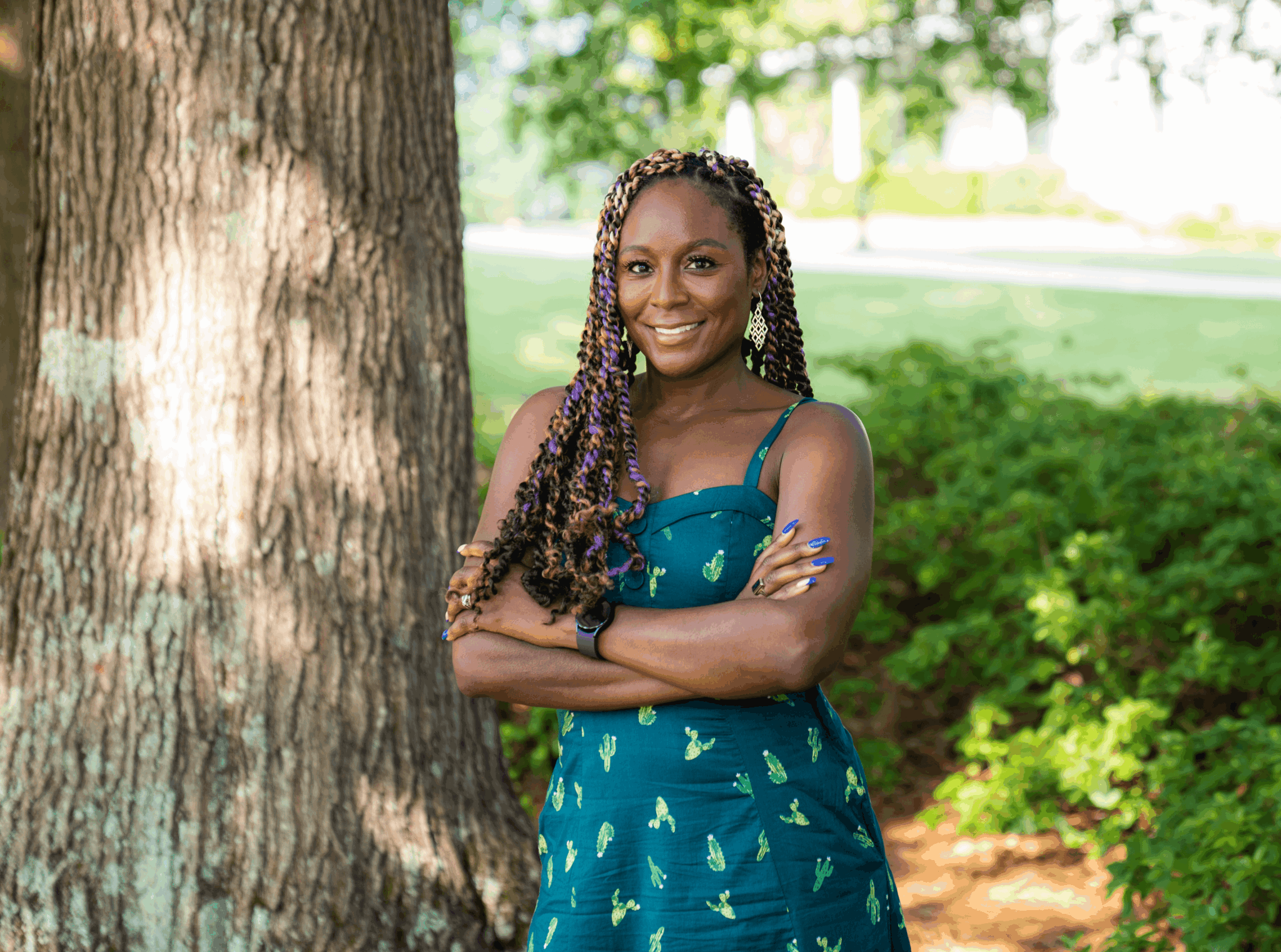We caught up with the brilliant and insightful Candace a few weeks ago and have shared our conversation below.
Candace, looking forward to hearing all of your stories today. What did your parents do right and how has that impacted you in your life and career?
What my parents did right was model two fundamentally different yet deeply complementary approaches to life, and those dual influences have shaped both my values and how I show up in my career.
My father was the quintessential builder, an entrepreneur in the purest form. He had this insatiable drive to create something of his own, not just for the sake of success, but for freedom. I remember being maybe six or seven, sitting beside him as he built a computer from scratch. I didn’t even understand multiplication yet, but I could identify a motherboard, RAM, a processor, and I knew how to install them. That might sound technical, but what he really taught me was how to be unafraid of complexity. He showed me that you don’t wait for someone to hand you the answers, you learn how to figure things out, even if that means failing repeatedly.
One story that has stayed with me happened when I was about five. I was terrified of worms, like, irrationally afraid. My father knew this and one day, he picked up a couple of worms and pretended to drop them down the back of my shirt. I took off running down the street, absolutely panicked, screaming and crying. When I finally stopped, I realized there were no worms at all. He was laughing hysterically, and I was shocked, but also strangely relieved. That moment, wild as it sounds, was his way of teaching me a bigger lesson: the only thing you really have to fear is fear itself. It was dramatic, yes, but effective. That memory has often grounded me in moments of uncertainty or challenge, reminding me that fear isn’t always reality, and sometimes what we run from doesn’t actually exist.
My mother, on the other hand, taught me the beauty of expression. She believed in singing loudly, dancing big, and not apologizing for taking up space. Even if you couldn’t carry a tune, the point was to live with your heart wide open. That taught me how to connect, how to be emotionally present, not just performatively empathetic. She gave me permission to feel things deeply and to help others do the same.
Together, my parents gave me the tools to both build and feel, to strategize and to connect. I don’t think I could do what I do, working in mental health, walking people through their hardest truths, without both. I can trace the roots of my approach back to those early lessons: be curious, be courageous, and be fully human.

Candace, before we move on to more of these sorts of questions, can you take some time to bring our readers up to speed on you and what you do?
I’m a licensed professional counselor and the founder of a private mental health practice that centers emotional wellness through practical, compassionate, and research-informed care. My work sits at the intersection of clinical psychology and real life because healing doesn’t happen in a vacuum, and therapy should never feel like a disconnected checklist of coping skills. It should feel like someone really sees you and is walking alongside you as you find your way.
I came into this field from a deep desire to understand not just the what of human behavior, but the why. Early on, I was struck by how many people felt like they were just surviving their lives, burnt out, emotionally shut down, trying to keep up with expectations that never seemed to end. I wanted to create a space where people could slow down, speak freely, and unlearn the shame that often masks itself as “resilience.” That desire turned into formal training in counseling psychology and certifications in evidence-based modalities like CBT, mindfulness-based CBT, and Acceptance and Commitment Therapy.
My practice specializes in treating anxiety, depression, stress-related disorders, relationship concerns, personal identity work, and perinatal mental health. I work with clients who are often high-functioning but emotionally exhausted, people who might look like they have it all together on the outside, but feel disconnected, overwhelmed, or like they’re quietly falling apart. I also incorporate financial wellness into therapy when appropriate, helping clients examine their relationship with money in ways that reduce shame, increase clarity, and align with their life values. Financial stress is emotional stress, and ignoring that intersection does a disservice to the full person.
What sets my work apart is my commitment to avoiding the clichés of therapy. I don’t hand out cookie-cutter worksheets or suggest journaling as a catch-all solution. Instead, I tailor every session and assignment to each individual, rooted in both data and deep empathy. Whether it’s using mindful cognitive techniques or applying ACT strategies in highly practical ways, the goal is always to equip clients with tools that actually work, not just in theory, but in the context of their lived experience.
What I’m most proud of is the trust my clients place in me. They come in holding some of the most vulnerable parts of themselves and allow me to help make sense of those parts, without judgment or pressure. That’s sacred work.
If there’s one thing I’d want people to know about me and my practice, it’s that this is a place for truth and growth, not perfection. You don’t need to be “ready” or have all the right words. You just need to be willing to start. The rest, we figure out together.
If you could go back, would you choose the same profession, specialty, etc.?
If I could go back, I would absolutely stay in the same field, but I’d integrate more formal research into my path much earlier. The clinical work is deeply fulfilling, and I genuinely feel called to sit with people in their emotional complexity. That part wouldn’t change. But I’ve come to realize how much I also value understanding why things work, not just that they work.
In therapy, we see transformation all the time, but the mechanisms behind those shifts often go undocumented in meaningful ways. If I had the chance to do it over, I would build a stronger bridge between clinical practice and applied research, perhaps by pursuing a dual role in academia or contributing to long-term studies on treatment efficacy, especially for underrepresented populations. There’s a gap in literature around culturally informed care, financial trauma, and non-pathologizing approaches to distress, and I think I could’ve had a broader systemic impact by engaging in that work more intentionally from the start.
One area I feel especially called to deepen in both practice and research is maternal mental health. Working with mothers has shown me how invisible their emotional needs often become, especially in a healthcare system that focuses so heavily on the physical aspects of birth and postpartum. Anxiety, rage, intrusive thoughts, identity loss, these are all common experiences that too often get dismissed as hormonal or temporary. I wish I had entered this specialty sooner and contributed to the growing body of research aimed at destigmatizing and better supporting perinatal mental health. There’s still so much to be uncovered about how systemic factors, unspoken grief, and generational trauma shape the maternal experience.
That said, I’m grateful for the lived clinical experience I’ve gained because it gives me a grounded lens through which to view any potential research. So the short answer is yes, I would choose the same profession, but I’d design it with more room for both inquiry and impact, especially for the voices that often go unheard.
Other than training/knowledge, what do you think is most helpful for succeeding in your field?
Beyond training and knowledge, the most helpful qualities for succeeding in the mental health field are emotional agility, deep listening, and disciplined self-awareness.
Emotional agility means being able to hold space for someone else’s pain without absorbing or minimizing it. Clients come in carrying complex emotions, grief wrapped in anger, anxiety masked as perfectionism, trauma hidden behind silence. To be effective, you have to navigate those layers without rushing to fix or reframe. That requires being present, not reactive.
Deep listening is more than hearing someone’s words. It’s noticing what they avoid, how they pause, what their body is saying even when their language is polished. In therapy, what’s unsaid is often more important than what is said. Cultivating that level of attunement allows for breakthroughs that wouldn’t be possible if you’re simply following a script or protocol.
And then there’s disciplined self-awareness, which I think is often underrated. You have to know your own stuff. You have to constantly be checking in with your own biases, blind spots, and emotional boundaries. If you’re not tending to your own emotional landscape, it will show up in the room, whether through over-identification with a client, burnout, or the subtle ways therapists can sometimes direct sessions based on their own unresolved needs. Success in this field depends not just on what you know, but on how well you know yourself.
Lastly, success in this work also requires the ability to sit with uncertainty and trust the process. Progress isn’t always linear. Sometimes sessions feel like nothing happened and then weeks later, a client makes a life-changing shift. You have to stay grounded in the long game, not the performance of progress.
Contact Info:
- Website: https://www.sunnywellnessofhoney.com
- Instagram: sunnywellnessofhoney


